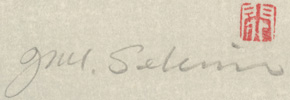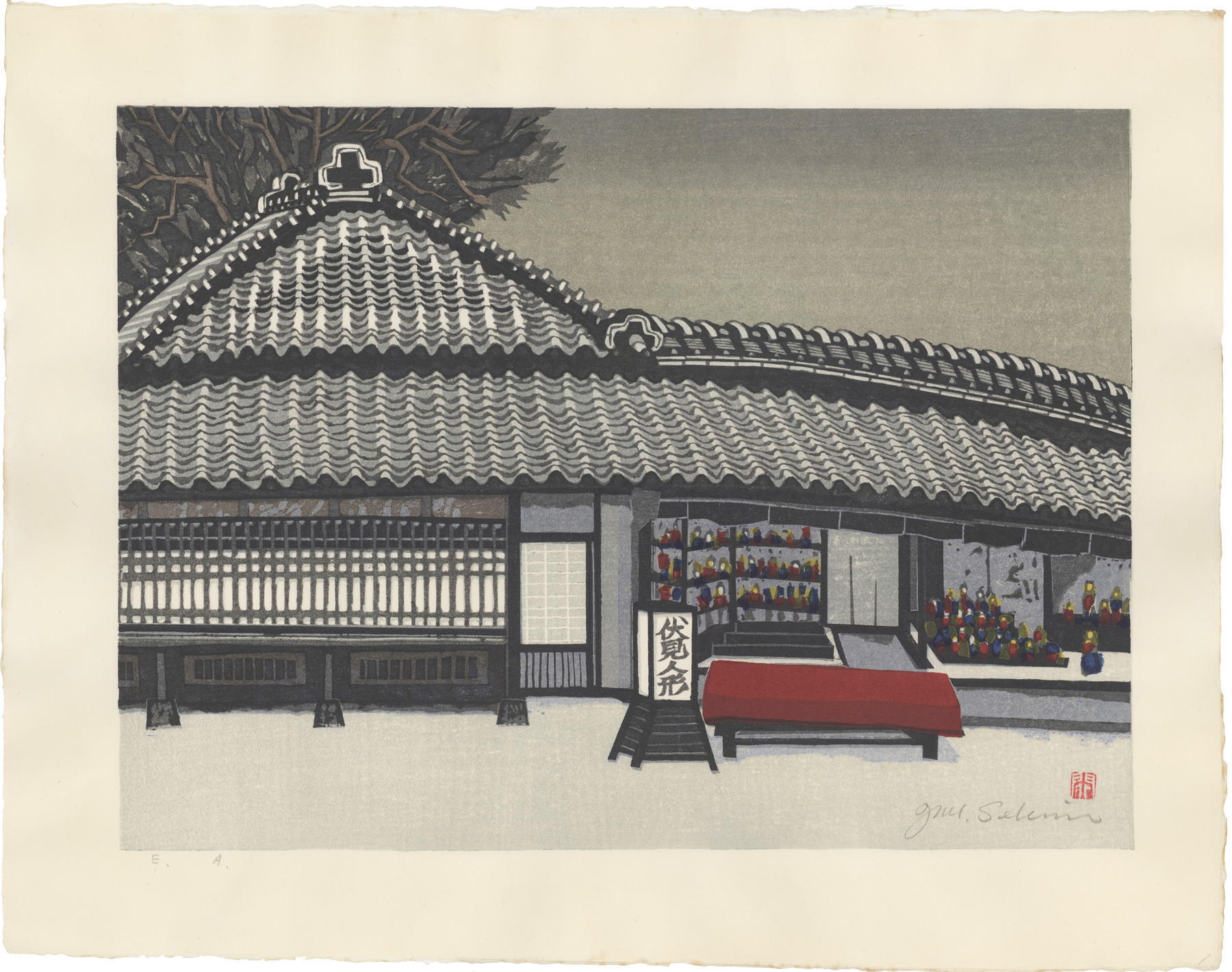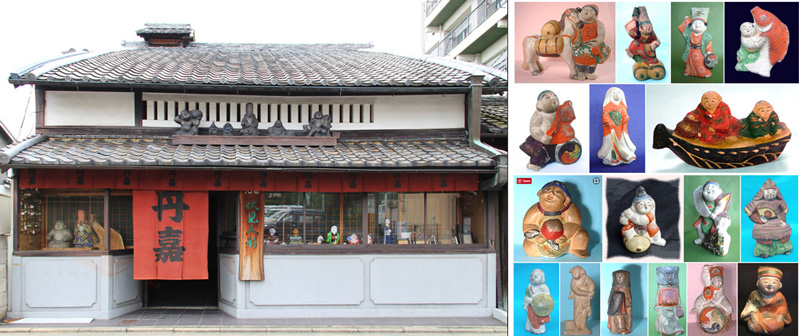About This Print
A sign proclaiming 伏見人形 (Fushimi ningyō) sits outside a Kyoto store, with a beautiful tile roof, displaying traditional clay dolls made in Fushimi. Next to the sign we see a empty display table with a red cloth covering. The English title provided in Jun'ichiro Sekino: The Prints tells us the time of year is Indian Summer and, perhaps, the unseasonably warm weather is keeping customers away, as no customers are in evidence.Fushimi Clay Dolls
Source: blog of the Daruma Doll Museum https://darumadollmuseum.blogspot.com/2004/11/fushimi-clay-dolls.html
The origin of all clay dolls in Japan is believed to be the "Fushimi Clay Dolls", painted dolls made of unglazed pottery that were sold in front of the gate to Kyoto's Fushimi Inari Shrine around the 16th century, starting at the end of the Momoyama period. They are also called called Fukakusa Dolls or Inari Dolls.
There are various types of dolls: some are painted in brilliant colors, others are finished in lighter colors to allow the character of the clay to show through, and still others are finished by glost-firing or twice-firing. The many different varieties include traditional dolls that reflect the court customs of ancient Japan, new style dolls that capture the joyful expressions of small children, dolls that celebrate seasonal festivals, animals that represent the years of the Chinese calendar, and earthenware bells.
Today clay dolls are made in about 300 locations all over Japan, but all find their ancestors in Fushimi.
There used to be about 20 kilns around Fushimi to produce these dolls but nowadays there are only two shops that make and sell these dolls along with other dolls and Shrine paraphanalia along the access road to the great Fushimi Shrine, the Tanka and the Hishiya shop 丹嘉と菱家, but only the Tanka shop has its old roots in the Fushimi area.
Print Details
| IHL Catalog | #1705 |
| Title | 伏見人形店 (小春) (京都) [Fushimi ningyōten (koharu) (Kyoto)] Doll Shop in Fushimi (Indian Summer Day) (Kyoto) (titles as given in Jun'ichiro Sekino: The Prints; not titled on print) |
| Series | |
| Artist | Sekino Jun’ichirō (1914 - 1988) |
| Signature |  |
| Seal | 関 "seki" seal as shown above |
| Publication Date | 1974 |
| Edition | marked "E. A." left bottom margin - Epreuve D'Artiste (artist's proof) |
| Publisher | self-published |
| Carver | self-carved |
| Printer | likely pinted by one of Sekino's studio printers - Kobayashi Sōkichi, Yoneda Minoru or Iwase Kōichi |
| Impression | excellent |
| Colors | excellent |
| Condition | excellent |
| Genre | sosaku hanga (creative print) |
| Miscellaneous | |
| Format | dai-ōban |
| H x W Paper | 16 3/4 x 21 1/2 in (42.5 x 54.6 cm) |
| H x W Image | 13 x 18 in. (33 x 45.7 cm) |
| Collections This Print | |
| Reference Literature | Jun'ichiro Sekino: The Prints, Sekino, Katsuko (ed.), 1994, no. 559, p. 113 |



